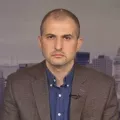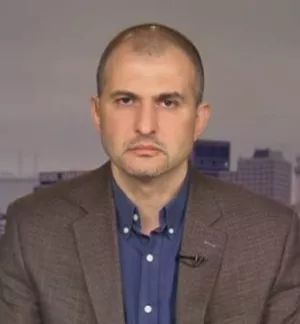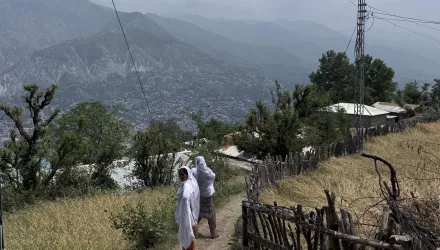Dmitry Medvedev's annual address to the federal parliament on 12 November was indeed a rather frank acknowledgment of current state of affairs in Russia and featured quite a few of what Soviet apparatchiks would have described as 'deviations from the party line' set by his mentor and leader of the United Russia, former president and current Prime Minister Vladimir Putin.
However, while criticizing the legacy, Medvedev still borrowed from Putin's book when he proposed solutions to what he rightfully described as the "most serious, domestic political problem" - the situation in the North Caucasus. This region, Medvedev said, is suffering from "unprecedented" violence, corruption and cronyism, as well as from "economic backwardness," "lack of normal life prospects," staggering unemployment rates and "mass poverty."
In addition to vowing to enhance the authorities' counterterrorism capacities in the North Caucasus, Medvedev tasked Putin with drafting a list of new investment projects and suggested ways to improve labor skills, especially of the region's bustling youth. He also said there would soon be new system of criteria to evaluate the "effectiveness of actions taken by federal authorities to deal with problems." But most importantly, Medvedev said he would soon name "a single individual who will be personally responsible for the situation in the region."
By proposing a North Caucasus tsar, Medvedev followed the path of Putin, who in 2004 appointed his close ally Dmitry Kozak to serve as his envoy in the Southern Federal District, which includes all North Caucasian republics. The appointment followed a series of large-scale terrorist attacks which made it crystal clear that sticks alone could not pacify the region. Under the three-year watch of this charismatic administrator the situation in the region did improve, with the exception of Ingushetia.
In spite of his rumored disaffection for that North Caucasus job, Kozak - who currently serves as Putin's deputy - might still be the best candidate for the post of regional tsar. Kozak combines legal education with very good administration skills and practical experience of governing in the region. He knows the North Caucasus elites, yet he is an outsider and, therefore, these elites know he can be an honest broker since he has no personal allegiances or ties to any of the region's indigenous ethnic groups.
He also knows most of the federal movers and shakers well and has access to both Putin and Medvedev with whom he worked in the St Petersburg mayor's office in the 1990s.
But these qualities alone will not suffice.
Kozak - or whoever else Medvedev taps for the job - would need extensive powers, foremostly the power to request and allocate federal subsidies to the republics as well as oversight over how they are spent with ability to hold officials accountable for the expenditures.
He would also need his own reliable and objective system of real-time monitoring of all aspects of the situation in the region and of evaluating the performance of specific administrators. He must also be empowered to hold both civil servants and law enforcers accountable for poor performance or abuses of powers, including not only embezzlement, but also abuse of civil and human rights.
Most importantly, he has to have a clear-cut vision of how to stabilize and modernize the North Caucasus with the support of the local population, which has a natural desire for safety, peace and prosperity.
The stabilization phase must include steps to ensure a significant improvement in the quality of counterterrorism and counter-insurgency operations, which are much hindered by corruption and the ideological conversion of law enforcers; an end to abuses of the local population at the hands of law enforcers and officials; the reduction of corruption and embezzlement in the public service; enhancement of efforts to win the ideological battle against religious extremism; and measures to create jobs and education opportunities on a massive scale.
Simon Saradzhyan is a research fellow at Harvard Kennedy School's Belfer Center. He is the author of several papers on security and terrorism.
Saradzhyan, Simon. “Uphill Battle for North Caucasus.” International Relations and Security Network, November 25, 2009




